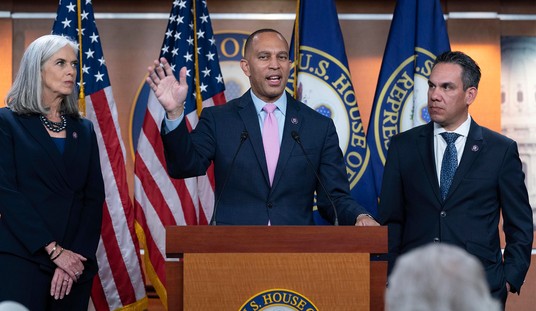In its never-ending quest to stop the peril this country faces from natural gas, the New York Times takes on Rep. Dan Boren, the sole Democrat in Oklahoma’s congressional delegation. He co-chairs the House Natural Gas Caucus and serves as a member of the House Natural Resources Committee. As a representative of the #3 gas-producing state, it’s not surprising that his voting record is decidedly pro-industry, and specifically, pro-fracking. (Boren, one of the more conservative Democrats in the House, has announced that he will not be seeking reelection in 2012.)
Of course, the Times tries to portray the Congressman’s voting record as corrupt, since he has income from a (silent) interest in a family enterprise (on the order of $100K/year). Added to that, his father, former U.S. Sen. David Boren (D-OK) receives compensation for his service on the board of a successful oil company. (David Boren, as the Times chooses not to report, is president of the University of Oklahoma since 1994, and a member of several corporate boards.)
The congressman’s income has jumped in the last six years, thanks to two family businesses he partly owns that have signed more than 300 mineral leases, worth hundreds of thousands of dollars. Many of those deals are with Chesapeake Energy, a top donor to his campaigns. …
House ethics rules do not prohibit lawmakers from taking steps to aid industries in which they have a financial stake. But some ethics experts say such actions are still inadvisable. [Emphasis added.]
“Some experts say…” It wouldn’t be a Times article without that chestnut.
“Even if it is legal, if every member of Congress pushed for industries that they have financial ties to, there would be an outcry from the public,” said Robert M. Stern, a California lawyer who has helped draft state ethics and campaign finance laws.
You gotta be kidding me, chief.
House ethics (oxymoron alert!) rules do not prohibit members from trading in public companies whose fortunes may be affected by Congressional action. And then there’s the case of Maxine Waters, who intervened, not in the interest of her state or an industry, but for a particular bank in which her husband owns a significant stake.
The implication that Boren’s voting record is the result of corruption and not the consequence of his experience and his constituents’ interests is pretty astounding.
Fracking has been going on in Oklahoma since the late 1940s. Oklahoma-based corporations (notably Chesapeake, Devon Energy, and Continental Resources) are national leaders and innovators in the new “resource” technologies. (The energy industry has always tried to cover its bets by backing friendly members of both parties, but energy state Dems are becoming an endangered species.)
Most of the land in Oklahoma is in private hands (or in some cases, tribal lands). It’s not unusual that a large land-owning family would be leasing its land, and not unusual that the pace of leasing has picked up since 2004, which was the beginning of a gas-drilling boom.
Oil and gas has been a large segment of Oklahoma’s economy since before statehood. The state depends not only on the 71,000 industry jobs; 1 in 7 jobs of all kinds depend directly or indirectly on energy. State revenues benefit from a 7% severance tax — a percentage of value of all minerals produced within its borders — in addition to income taxes. Then there are the landowner royalties, the mineral owner’s participation in success, a tremendous source of income to the landowners of the state.
What is the power of the natural gas bogeyman in the mind of the Times and in the minds of its (dwindling) legions of readers?
What is the mystical power of oil and gas money versus, say, corn money?
Should we question the ethics of a Kansas, Iowa or Indiana legislator with family interests in farming be questioned because of a vote on agricultural policy, or ethanol subsidies? I’m sure there are plenty of examples.
Is a congressman from Florida or Hawaii suspect because of donations from the tourism industry? Nevada and gambling? New Jersey and concrete?
Are the only politicians to be trusted anti-industry hacks like Henry Waxman (CA) or Ed Markey (MA)? Or the delegates from Puerto Rico, American Samoa, the Northern Marianas and Guam, who the Democrats have packed onto the House Natural Resources Committee, and who enjoy full voting rights on committee matters?
Or better yet, are we going to trust Hollywood know-nothings like Mark Ruffalo on energy issues?
It’s probably good timing for Boren to leave Congress in 2012. His district encompasses much of what was once a Dem stronghold in eastern OK, but with redistricting and population shifts it now comprises growing Tulsa suburbs which trend conservative. In 2010, he beat his Republican challenger 56-43 despite an overwhelming money advantage.
Cross-posted at stevemaley.com.













Join the conversation as a VIP Member